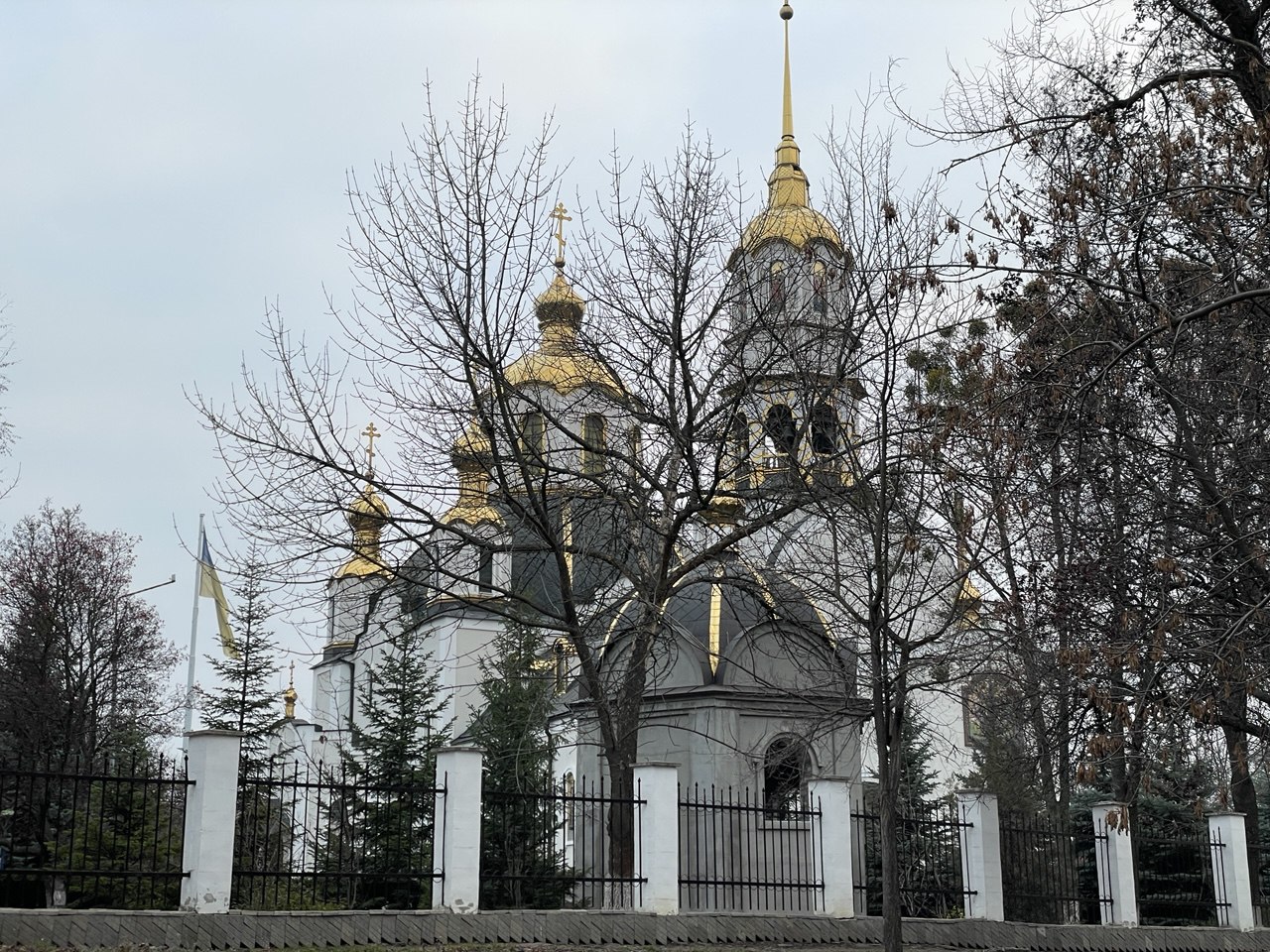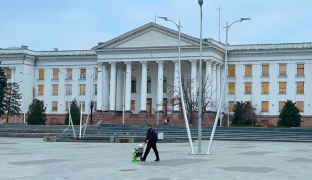The development of events in the last two weeks shows that, contrary to the efforts of the USA and the Western European member countries of the Normandy Four, the parties to the conflict in the east of Ukraine – Kyiv and Moscow – have not become closer to its resolution. Kyiv extended special status of the Donbass (which is the political basis of the Minsk process) for another year, but the parliamentary voting showed that President Poroshenko still does not have an internal political resource for implementation of the Minsk agreements. In turn, Moscow imposes its own version of introduction of the UN peacekeepers in the occupied territory on the USA and Ukraine, which is unacceptable for Kyiv. While the Ukrainian parliament passes a bill declaring Russia the aggressor and occupier in the first reading, and also throws out the mention of the Minsk agreements from the text, the Kremlin continues to insist on legitimizing the puppet "DNR-LNR" as the parties to negotiations with Kyiv, and publicly demonstrates its support for the "republics". The latter, in turn, stated that they would not admit the UN peacekeepers into their homes and warn that in case of Moscow's refusal of their support, they will start military operations against Ukraine.
In this context, the Kremlin tries to compensate for the Western sanctions by extending cooperation with Asian countries for opportunity to preserve its Ukrainian policy. And Ukraine discovers that its European neighbors, Hungary and Romania, act in Ukrainian Transcarpathia using the same methods that Russia was preparing for the Russian Spring in the Donbass and Crimea.
Russian factor
Despite economic sanctions and diplomatic efforts of the USA, Russia does not intend to change the nature of its aggressive policy towards Ukraine. All its actions are still aimed at preservation of the actual control over the occupied territories of Ukraine, as well as at lifting of the sanctions and their consequences, including by means of compensation through trade and investment policies with the countries of Asia.
After the October 7 meeting of Putin's assistant Vladislav Surkov with the U.S. State Department's Special Representative Kurt Volker in Belgrade, Russian Presidential Spokesman Dmitry Peskov stated that no "Normandy formats" and peacekeepers will help Ukraine until it itself sits at the negotiating table with the leaders of the self-proclaimed "DNR" and "LNR". A week later, Surkov himself opened a monument "To the Heroes of Donbass" in Rostov-on-Don, along with the "DNR" leader Alexander Zakharchenko. At the same time, Zakharchenko stated in his presence that he would not let any peacekeepers to the Donbass.
Nevertheless, after the meeting of Surkov and Volker, the media received "confidential" information that the Russian Federation and the USA had already agreed on such an option for the implementation "of the Minsk agreements, when, according to the Russian proposal, the peacekeeping contingent should drive the belligerent parties back from the front line and force them to cease the fire. After that, the Ukrainian parliament will allegedly have to pass several laws in the context of the Minsk agreements implementation, and after that, the prisoners will be exchanged. After this, the Russian Federation will allow peacekeepers to enter the entire occupied territory of Donbass and ensure military order for the time of elections there. After the elections, Russia will "immediately" cede control over the border to the Ukrainian party".
Taking into account the repeated statements by the U.S. representatives that peacekeepers should create safe conditions for the implementation of political part of the Minsk agreements, it can be assumed that the main players – the Russian Federation, the USA and Germany (with the consent of P. Poroshenko) – reached consensus in solving the problem: the UN peacekeeping forces should ensure the holding of local elections in the occupied territory, after which Russia cedes control over its border with Russia to Ukraine. We are confident that the Kremlin, having "agreed" to hand over the border to Ukraine "immediately after the elections", will NOT do this, appealing to various articles of the Minsk agreements and interpreting them in its own way. In fact, this behavior is typical for Russian foreign policy in matters of pacification of the aggression's victim. In any case, the Russian Federation will not leave the Donbass unless it is confident that it will retain effective control over this territory and will be able to paralyze Kyiv's policy on the integration issues, including with the help of the "Western guarantors". Moreover, the head of the puppet "DNR" Zakharchenko blabbed out that he would not allow Ukraine to hold parliamentary or presidential elections on the territory of the republic. This will allow us to talk about the illegitimacy of Ukrainian authorities, or force Kyiv "to recognize the DNR and the LNR and then hold elections on "the whole territory", but only of their own state – without us".
In any case, Russia continues to consider the Donbass as an instrument of influence on Ukraine's internal and foreign policy. Holding local elections at an open border, albeit under the supervision of peacekeepers, will lead to the fact that all power will be given to pro-Russian collaborators. The collaborators will let nothing "Ukrainian" there under the control of Russians. In fact, this will mean turning a part of Ukrainian territory into a "legitimate" Russian enclave, which, having obtained legitimacy and an open border with Ukraine, will allow the Russian Federation to have more influence on the internal and foreign policy of Kyiv.
Against the backdrop of these efforts, Russia also continues to prepare for a possible military confrontation with Kyiv on Ukrainian territory. So, as means of political pressure on Ukraine and the West, the results of a public opinion poll were published in the Russian Federation, where 70% of the Russians answered that Russia would have to use armed forces, if Ukraine tries to liberate the Donbass territory.
Furthermore, the Russian Federation continues the work to stir up interethnic hostility within Ukraine and to exacerbate Ukraine's relations with the countries of Central Europe. The SBU detained a group of Ukrainian citizens, hired by Russia's secret services, who specialized in defiling religious buildings (synagogue) and/or undermining historical monuments, in particular those related to the history of Poland and Hungary.
Also, attention is drawn to the fact that Moscow is trying to compensate for losses from Western sanctions in other markets. During the visit of the King of Saudi Arabia to the Russian Federation, several extensive agreements on trade and military-technical cooperation were signed between the states. According to unverified information, Saudi Arabia signed $10 billion contracts for the purchase of arms and technology in Russian Federation. In particular, Saudi Arabia buys the S-400 missile system, the Kornet-EM anti-tank guided missile, the TOS-1A Buratino heavy flamethrower system, the AGS-30 grenade launchers and the AK-103 assault rifle of the Kalashnikov series in the Russian Federation. At the same time, the King of the Saudi Arabia announced the expediency of withdrawing international sanctions from Russia. Obviously, the parties have found some common understanding on the situation in Syria as well.
Ukrainian domestic political factor
The President of Ukraine Petro Poroshenko still does not have an internal political resource for Ukraine's fulfillment of the Minsk agreements, which he has undertaken. On October 4, he introduced the bill "On the peculiarities of state policy to ensure the state sovereignty of Ukraine over temporarily occupied territories of the Donetsk and the Luhansk oblasts", in which he made an attempt to implement the Minsk agreements into the legislation of Ukraine, for consideration by the Verkhovna Rada. This caused a sharp rejection on the part of people's deputies, including factions that are part of the ruling parliamentary coalition. The bill was passed in the first reading only after the mentioning of Minsk agreements was thrown out of the text. On the same day, another presidential bill was passed, which extended the "special status of the Donbass" for one year. This status is the basis of political arrangements of the Minsk complex of measures for resolving the conflict. This allowed the Minsk negotiations to continue, but the deputies introduced an amendment to the bill on the condition that the "special status" comes into effect only after the withdrawal of all illegal armed formations from Ukraine. That is, actually leveled it. Deputies of coalition factions did not hide the fact that the bill was voted only to give the president tool to continue the negotiations and to assign all the responsibility to him.
At the same time, many MPs note in private conversations that despite the preservation of the Minsk process as a source of sanctions for Russia and international support for Ukraine, no one can force the Verkhovna Rada to appoint elections in the occupied territory until it considers it to be safe for the country. And this can happen at least a few years after the closure of border with Russia.
Accordingly, the Russian scenario for the introduction of peacekeepers for local elections in the Donbass and the creation of a legitimized pro-Russian enclave is practically not feasible even with the support of the USA, Europe and president Poroshenko. Obviously, Kyiv and Moscow understand this, and therefore they consider negotiations on peacekeepers as buying time.
In fact, the continuation of the Minsk process is an instrument for preserving the war, and not for its cessation, since neither side of the conflict views the Minsk agreements as those that must be implemented. They are only used by the parties to weaken the enemy.
Another law "On Education", passed by the Verkhovna Rada, can also have an unexpected impact on the Donbass events. It received a resonance in connection with the norm that secondary education for the national minorities should be provided in the Ukrainian language. This norm is especially important for Transcarpathia. There, according to the Ministry of Education, graduates of secondary schools are educated in Hungarian and Romanian languages and do not speak the state language in places of compact residence of national minorities. According to official statistics, in 2016, more than 36% of Transcarpathian graduates passed an exam in the Ukrainian language with a score of 1-3 points (on a 12-point scale). This makes them not competitive when entering Ukrainian universities.
Russia, Hungary, Romania, Poland, Moldova, Bulgaria and Greece criticized the law. At the same time, of all these countries, only one Ukrainian-language lyceum (with about 200 students) operates in Romania. Hungary took a special position and promised to "hurt" Ukraine on an official level. It is going to withdraw its signature from the association agreement between Ukraine and the European Union.
Under the auspices of the government, the "Self-determination for Transcarpathia" rally was held in Budapest. It brings out what previously only the specialists saw: Hungary (and Romania) act in the same way as Russia had before the armed aggression in the Crimea and the Donbass: mass issuance of citizenship to the representatives of national minorities in Ukraine (which is prohibited by the Ukrainian Constitution), attempts in protection the places of their ethnic citizens' compact residence from the Ukrainian language, Ukrainian education and media.
This case leads to the conclusion that Ukraine will have issues with territorial claims and attempts to influence the policy of the state not only with Russia. As well as the fact that "integration into the EU and NATO" is becoming an increasingly unrealistic goal of the Ukrainian state. This, in turn, is likely to contribute to the evolving of more right-wing national political forces and politicians who will plan the development of the state taking into account that Ukraine is surrounded by unfriendly and/or potentially unfriendly countries. Logically, this will force Ukraine to look for more substantial ways to ensure external security (up to attempts to resume the production of nuclear weapons), as well as look for other allies.
Situation in the "DNR-LNR"
The events in the occupied territories of Donbass marked a new trend: Moscow has already begun to consider its puppets as an independent military force. This threatens that any agreements with the Kremlin on the settlement of conflict in the Donbass can be leveled by the "independent" from it "DNR" and "LNR". This fully corresponds to the tactics of Moscow's delaying the negotiation process, which simulates the conflict resolution.
In particular, public statements of the separatist leaders, which run counter to the official positions of Moscow, attract attention. For example, after talks on the UN peacekeepers between Volker and Surkov, the "DNR" leader Alexander Zakharchenko, in the presence of Surkov, states that he will not allow peacekeepers to enter his territory.
And his adviser Alexander Kazakov openly stated that if Moscow stops financial and political support of the "republics", they will launch an offensive on the front and Putin will not be able to influence this. This statement looks like blackmail, but it is obvious that it is meant to demonstrate the "independence" of the "republics" from the Kremlin.
A similar statement was made by the "Foreign Minister of the LNR" Vladislav Danego, who said that the non-prolongation of the "special status" for the Donbass "calls into question the possibility of containing an armed confrontation".
Against the backdrop of Surkov's and Volker's talks, the leader of the "DNR" Zakharchenko gives an interview to the Russian media, saying that the region's return to Ukraine is possible only under the condition of "changing the format of power in Ukraine, in which we can really influence some processes in the country".
Moscow's puppets torpedo the very possibility of implementing the Minsk agreements by Kyiv. The more political subjectness Moscow gives to its agents in the Donbass, the fewer opportunities for president Poroshenko are left for the implementation of Minsk agreements. The more grounds for the development of conflict will arise in the future.
Special danger also bears the fact that Moscow allows its puppets to create their own military-industrial complex in the occupied territories. There were media reports that production of pistols, sniper rifles and mortars was set in Donetsk.
Conclusion: Regardless of the diplomatic efforts of the USA, the prolongation of the "special status" for the occupied Donbass and other steps, aimed at resolving the conflict, as of today, neither Poroshenko nor Surkov or Volker have mechanisms to implement the Minsk agreements, even if they reach appropriate agreements. Accordingly, after some actualization of the Donbass issue, the situation on the peaceful settlement of conflict has returned to the status quo, that is, there is no real progress in this direction.
Obviously, the West's tactics "do not force, but persuade the aggressor to abandon aggression by putting pressure on the victim of aggression" - does not work, but only increases the conflict potential.
Centre for research of Donbass social perspectives
The review was prepared with the support of GPD Charitable Trust





